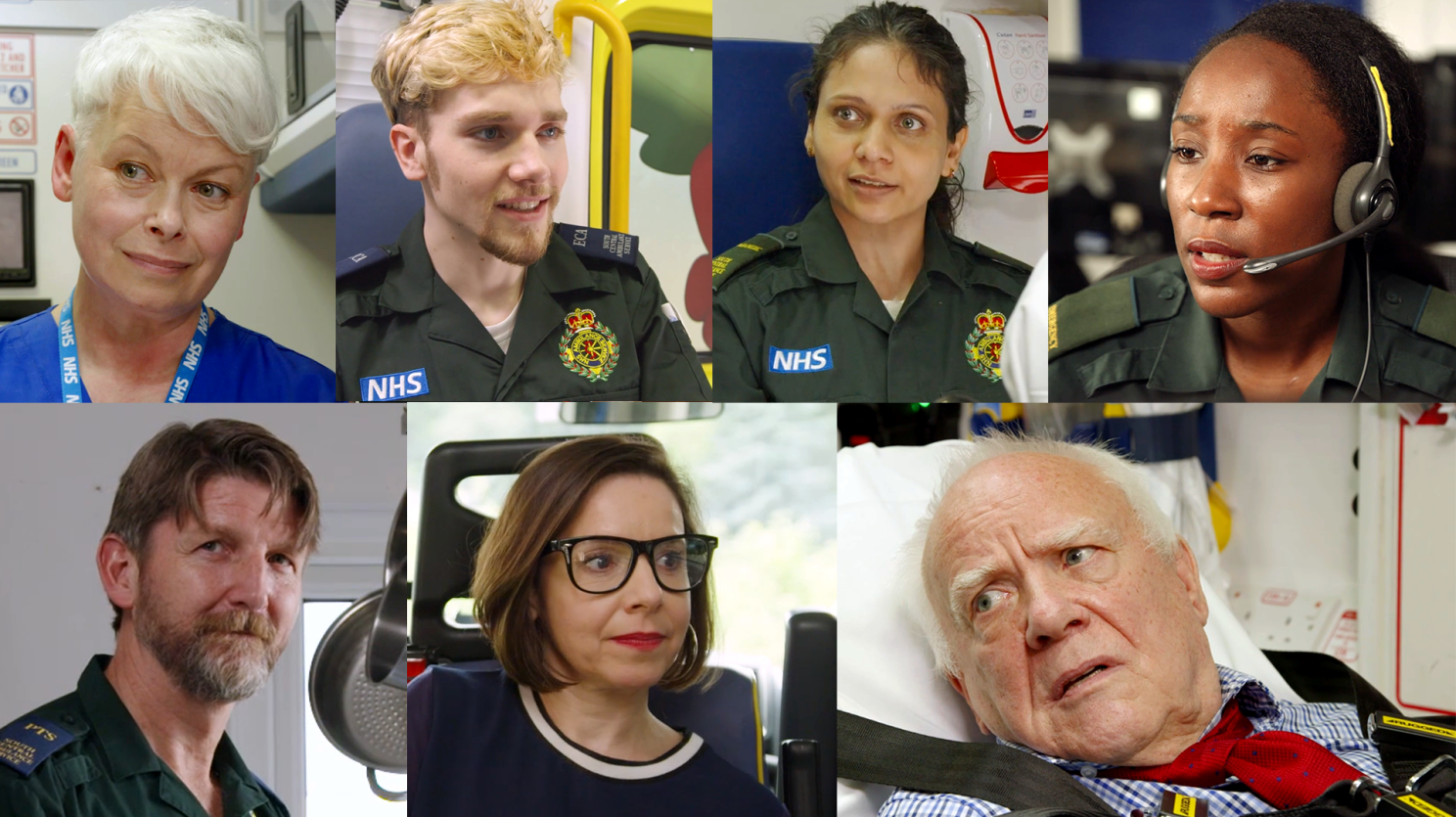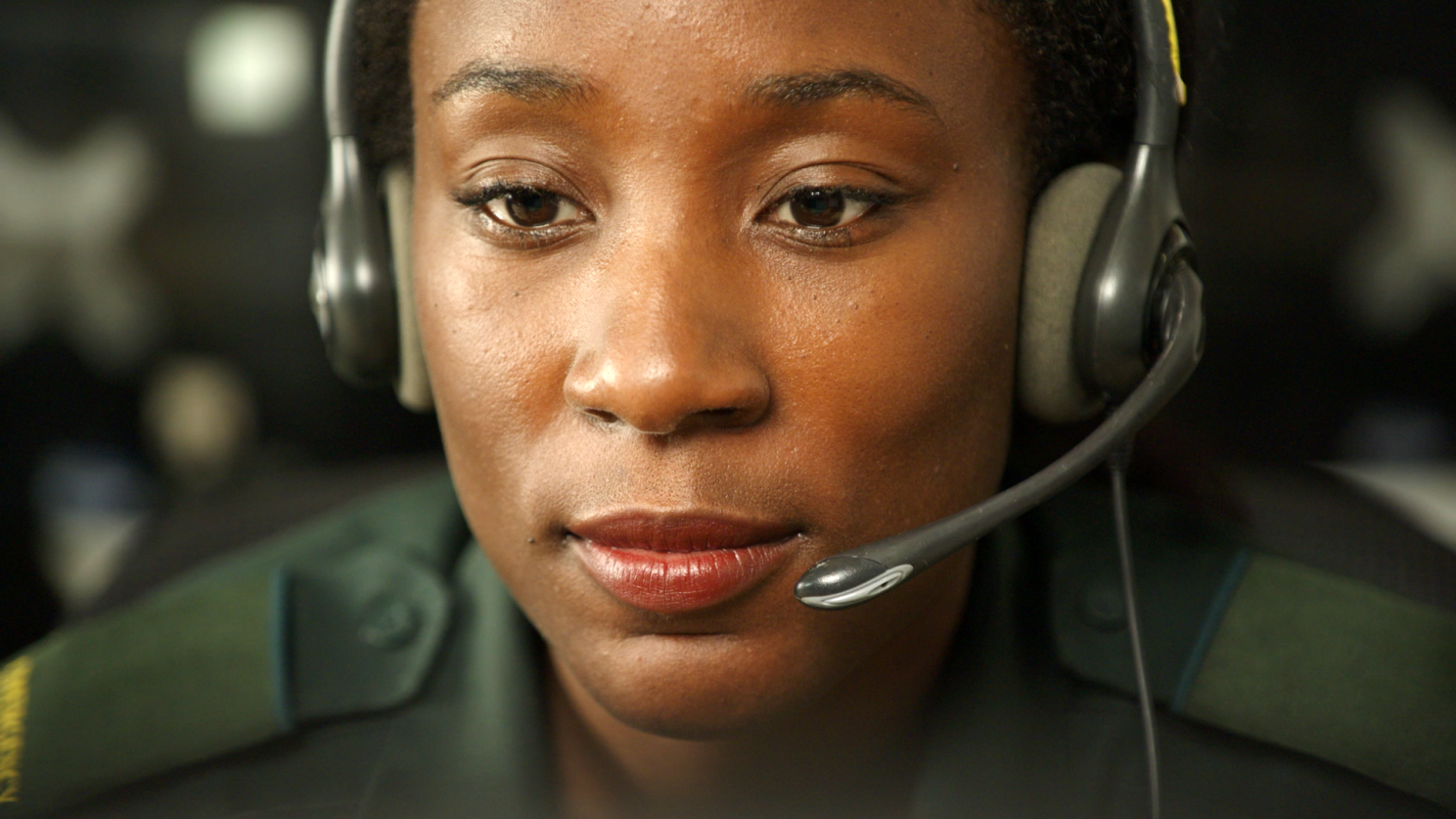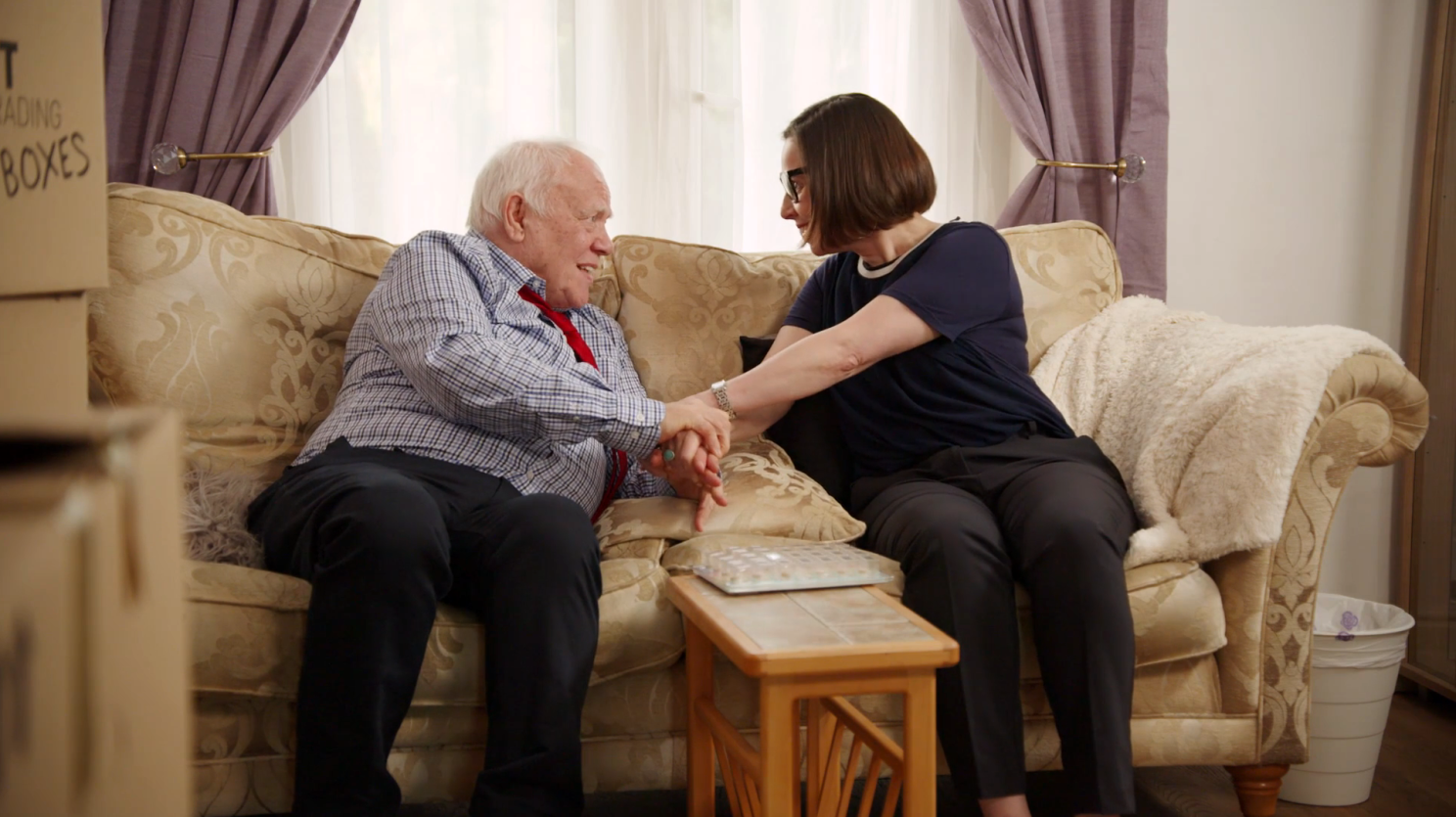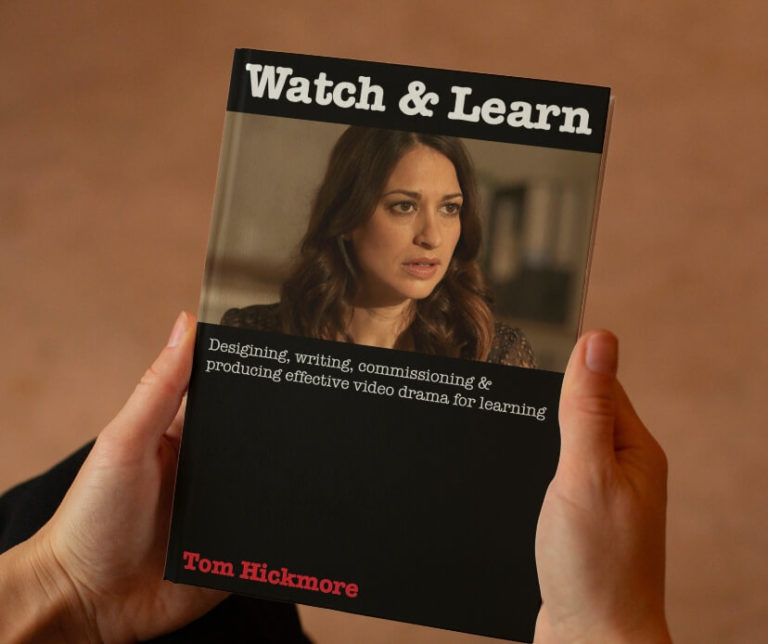In the summer of 2021 Nice Media produced a series of learning videos about dementia awareness for South Central Ambulance Service (SCAS).
The Need
As part of SCAS’s response to Health Education England mandating Tier 1 Dementia Awareness training, Nice Media were commissioned to produce approximately 20 minutes of video content to be used within teaching sessions, delivered in person or virtually using Microsoft Teams, reaching more than 50,000 Ambulance staff across several Trusts, including more than 22,000 paramedics.
Development
Chloe Lofthouse-Jones, SCAS Education Manager, had developed a high-level design to support the key objective to make the content relevant to a range of different staff roles across ambulance services. The scenarios would follow the journey of a dementia patient through their interaction with various elements of the ambulance service:
- A Call Taker in an ambulance control room answers a call from a patient
- Frontline ambulance staff respond to the call, meeting the patient, and taking him to hospital in an ambulance
- The non-emergency patient transport service taking the patient home.
Here, already was the basis of a story. Usually, when designing drama video, Nice put a good deal of development work into maximising conflict to ensure maximum engagement. This story design was deceptively effective and needed little development because it incorporated a lot of conflict for the characters throughout. People with dementia are unpredictable – with the potential to offer challenges to staff whenever they are encountered.
After studying the detailed messaging needed, we wrote scenes to bring out the grey areas in which an optimal action is unclear. Drama is about decision-making, so the harder the decision one presents, the more engaging for the audience and the deeper they will reflect upon the subject matter.
There are basic checklists in relation to safeguarding, but staff must use soft skills to ensure they are actioned. Expertise here is not necessarily correlated with seniority or experience because the responses must be so human-centred and personal. So, we featured a rookie character getting a better response from the patient than his superior.
SCAS were very proactive with the character development which resulted in casting that is both diverse and realistic.

The Videos
To give insight into the content let’s look at the opening scene. An Emergency Call Taker is put through to an old man, Edgar who has had a fall. We see the call from her point of view and only hear Edgar’s voice. The Call Taker asks straightforward questions but gets strange, nonsensical answers. She tries her best to help him, and all the time we hear the pain and confusion in his voice, while she remains calm and in control. She tries to follow a script on her screen, but his answers to the simplest of questions are quite bizarre. Edgar thinks he’s in his storeroom at work, but in fact he’s in his lounge.

The story continues as the ambulance crew arrive. They discover Edgar with a potential fracture, lying on his floor surrounded by boxes full of “stock”. After checking his injuries, they fight with his confusion and fear to get him into the ambulance. The struggle continues as Edgar hallucinates, panics, and becomes abusive.
Later, Edgar returns from hospital with his adult Daughter at his side. Now, the non-emergency patient transport service character faces the challenge of Edgar’s confrontational outbursts and lack of cooperation in front of the Daughter.
The ambulance staff characters featured didn’t need to emote very much, because it is their job to be cool in the face of emotional situations, but Edgar and his Daughter were contrastingly expressive. This provided the basis for a dramatic tension.
It was rewarding when our team shed a little tear upon viewing the final scene in the video – as the Daughter gives Edgar a big hug.

The Reception
“What I liked is that these videos are realistic and actually feel like real life scenarios that [ambulance] crews would go to. They were informative and dealt with the issues raised respectfully. The opportunity for discussion afterwards means staff are included in the learning process. This will be really beneficial as we can share and listen to different viewpoints on the videos and learn from each other’s experiences.”
SCAS Paramedic / Education Manager (October 2021)
This project won two 2022 Learning Excellence Awards – Award of Merit for Health, Medical, Pharmaceutical and Social Care (including care homes and care at home services), Award Winner for Public Services and Utilities (including national and local government departments, police, emergency services and armed forces).



